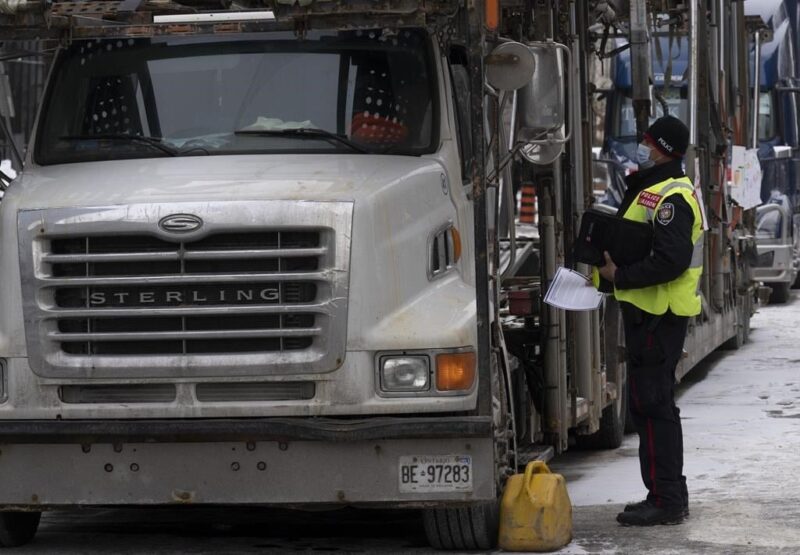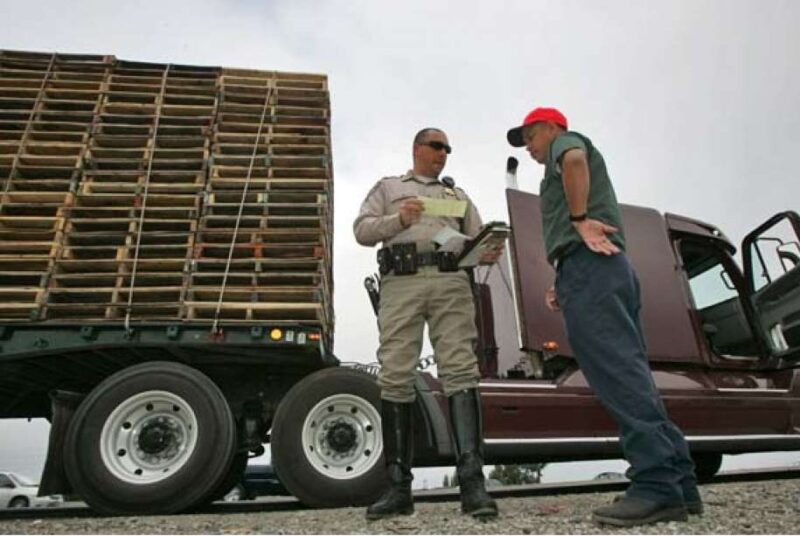Understanding traffic laws and their corresponding consequences is an essential part of being a professional driver, especially for those in the commercial industry. From delivery drivers to 18-wheeler operators, every commercial driver must deal with a myriad of road rules and regulations every day.
Traffic tickets might seem to be just minor inconveniences for regular motorists, but they carry much greater significance for commercial drivers. Facing the potential consequences of traffic tickets can be a career-altering event and can carry heavy implications for their employment.
An Overview of Traffic Tickets

A traffic ticket is a notice issued by a law enforcement official to a motorist or other road user who has violated traffic laws. Tickets specify the type of violation, which can range from non-moving violations like parking offenses to moving violations like exceeding the speed limit or running a red light. Different traffic violations incur different points on a driver’s record, depending on the severity of the offense.
These points can accumulate over time and lead to repercussions such as increased insurance rates, suspension of driving privileges, or even job loss in the case of commercial drivers. It’s critical for every driver, but especially for commercial drivers, to understand traffic tickets not as mere roadside inconveniences but as serious legal implications that may require the assistance of a traffic ticket attorney, as they can have lasting effects on their careers.
Consequences of Traffic Tickets for Commercial Drivers
Commercial drivers are licensed professionals who are paid to transport goods or passengers. They drive vehicles like delivery vans, tractor-trailers, buses, or taxis. Since commercial drivers typically spend more time on the road than general motorists, their exposure to potential traffic violations is proportionately higher. These infractions can not only pose safety risks but also threaten their professional livelihoods.
Understanding the common traffic violations among commercial drivers is important, these can include speeding, driving under the influence, failure to adhere to rest regulations, and reckless driving. For commercial drivers, maintaining a clean record is important as their Commercial Driver’s License (CDL) carries higher standards and strict regulations, making any traffic ticket a matter of significance that may lead to suspension or revocation of their CDL.
Traffic tickets carry severe consequences for commercial drivers, more than just fines or points on their record. If a commercial driver accumulates too many points through violations, they risk suspension or even termination of their commercial driver’s license. Loss of their license essentially outlines the loss of their source of income. They would also likely be deemed a high-risk driver by insurance companies which may lead to substantially higher insurance premiums or even outright denial of coverage.
Traffic tickets can have serious impacts on commercial drivers’ professional reputations and job stability. Often, employers assess traffic records when hiring commercial drivers, and existing employers also regularly check these records. Too many tickets can make it difficult for commercial drivers to secure future employment, and could also lead to job loss if the employer decides the driver is too much of a liability.
How to Deal with Traffic Tickets as a Commercial Driver

If a commercial driver receives a traffic ticket, the first step is to not ignore it. The ticket will have information about the violation, including any fines and dates by which fines must be paid or court appearances must be made.
Acting promptly will prevent any additional penalties or arrest warrants. Depending on the gravity of the traffic violation and state laws, commercial drivers may consider fighting the ticket, particularly if they believe they have a valid case, or the ticket could affect their commercial driver’s license.
The dilemma of whether to fight a ticket or plead guilty depends on many factors. Fighting a ticket may result in an outright dismissal or reduction of the penalty, especially if drivers have solid evidence or a clean driving record. However, it can also be time-consuming and stressful, especially without legal guidance. If a driver wants to pursue appealing the ticket, they should seek counsel from a traffic ticket attorney.
Pleading guilty is often simpler, but it automatically imposes a penalty and inflicts a violation on the driver’s record. The enormity of commercial driving implications makes it important for drivers to assess each situation carefully. If you doubt any technicalities or legalities regarding your ticket, it’s imperative to get the aid of a traffic ticket attorney, especially in situations that could significantly impact their license, profession, or insurance premiums.
Defensive Driving and Prevention

For commercial drivers, particularly those operating large rigs, mastering the art of defensive driving is a critical component in minimizing traffic violations and enhancing road safety. Defensive driving extends beyond mere adherence to traffic laws; it encompasses a proactive approach to driving, where drivers are constantly vigilant, anticipating potential road hazards, and making informed decisions to avoid accidents.
Key strategies in defensive driving include maintaining a safe following distance. This is crucial for large vehicles that require more time and distance to stop safely. Being acutely aware of blind spots is another vital aspect, especially given the larger blind spots in commercial vehicles. Drivers must ensure they are visible to other road users and regularly check mirrors to monitor traffic in these blind spots.
Adjusting driving behavior according to weather and traffic conditions is also essential. For instance, reducing speed during heavy rain, fog, or in heavy traffic can prevent accidents. Staying updated with the latest road safety practices is another key factor. This involves regularly participating in training sessions and refresher courses that cover new driving techniques, safety regulations, and first-aid procedures.
The Bottom Line
Compliance with traffic laws is not just about avoiding fines or keeping a clean record; it’s a mandate for ensuring safety on the roads. Driving is part of all of our lives but it’s of utmost importance that we remember to adhere to traffic laws to stay safe every day.
For commercial drivers, the importance is even greater, considering the potential professional implications. Remember, as a commercial driver, your actions on the road can impact your livelihood. Stay informed, be proactive, and drive responsibly.

